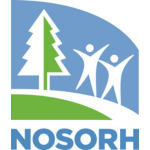Peer-to-peer sharing is one of the benefits of the Michigan Rural Health Clinic Quality Network (MI RHC QN), sponsored by the Michigan Center for Rural Health (MCRH). What started as a small, informal quality network with only 15 active members in June 2011 has continued to grow and gain enthusiastic members. Today, representatives from over 50 of Michigan’s 170 clinics participate in the network and attend its quarterly meetings held in Mt. Pleasant, Mich.
“When members want to talk about quality improvement initiatives in their clinics, we make sure they’re on the agenda,” said Crystal Barter, MCRH Health Systems Development Coordinator, who coordinates the network. “It doesn’t matter what initiative they choose, as long as it has made an impact in their clinic and they feel their peers would benefit from listening to it.”
The quality network is part of the MCRH’s recent effort to ramp up their work with RHCs, which also includes a focus on ICD-10 and practice management, according to John Barnas, director of the MCRH. In the past year, MCRH has been going through a process of getting clinics to collect a cohesive set of data, Barnas said. This has become increasingly important because insurance companies are giving RHCs incentive payments based on data and because of the implementation of meaningful use standards for Medicaid patients.
MCRH looked at a core group of RHCs in the quality network and compared what they were doing with various initiatives, and came up with a set of Quality Assessment Performance Improvement Measures. The measures include three core measures that network members must collect at minimum—for high blood pressure, tobacco use, and BMI (body mass index). (An Excel file of the measures is available on the RHC section of the MCRH web site).
Participation in the MI RHC QN and its quality collection is voluntary. “There’s no monetary incentive right now,” Barnas said. “These people are driven to do the right thing. We pay for their travel and buy them lunch. They like having the chance to get together. But we think eventually CMS is going to require this type of thing—to prove you’ve had some kind of impact.”
If other SORHs are interested in sponsoring a RHC quality network, Barnas suggests that they use their annual rural health conferences to convene a meeting for it. There’s a tool already out there for them to dump and track their data in real time, he said, called Quality Health Indicators (QHi).
